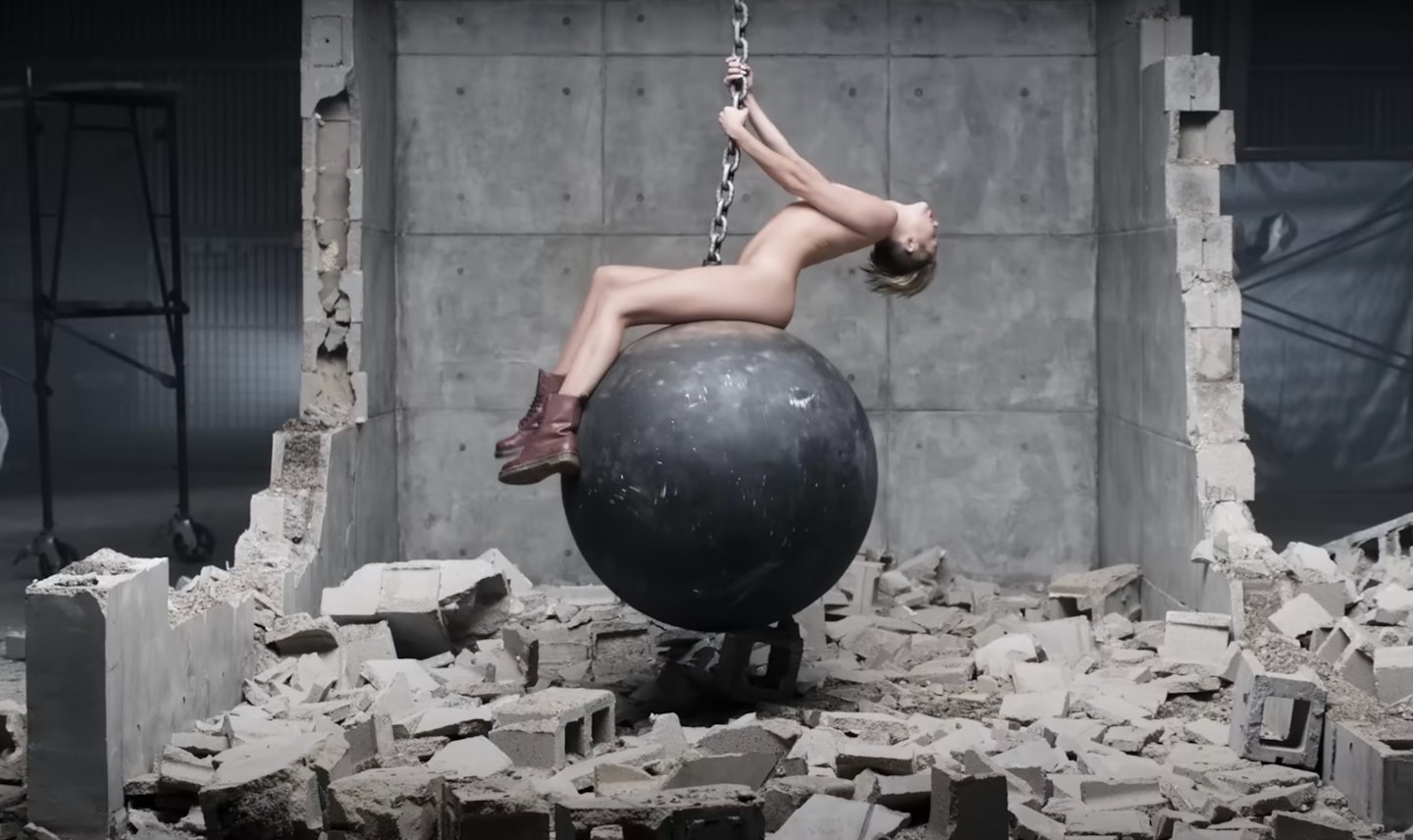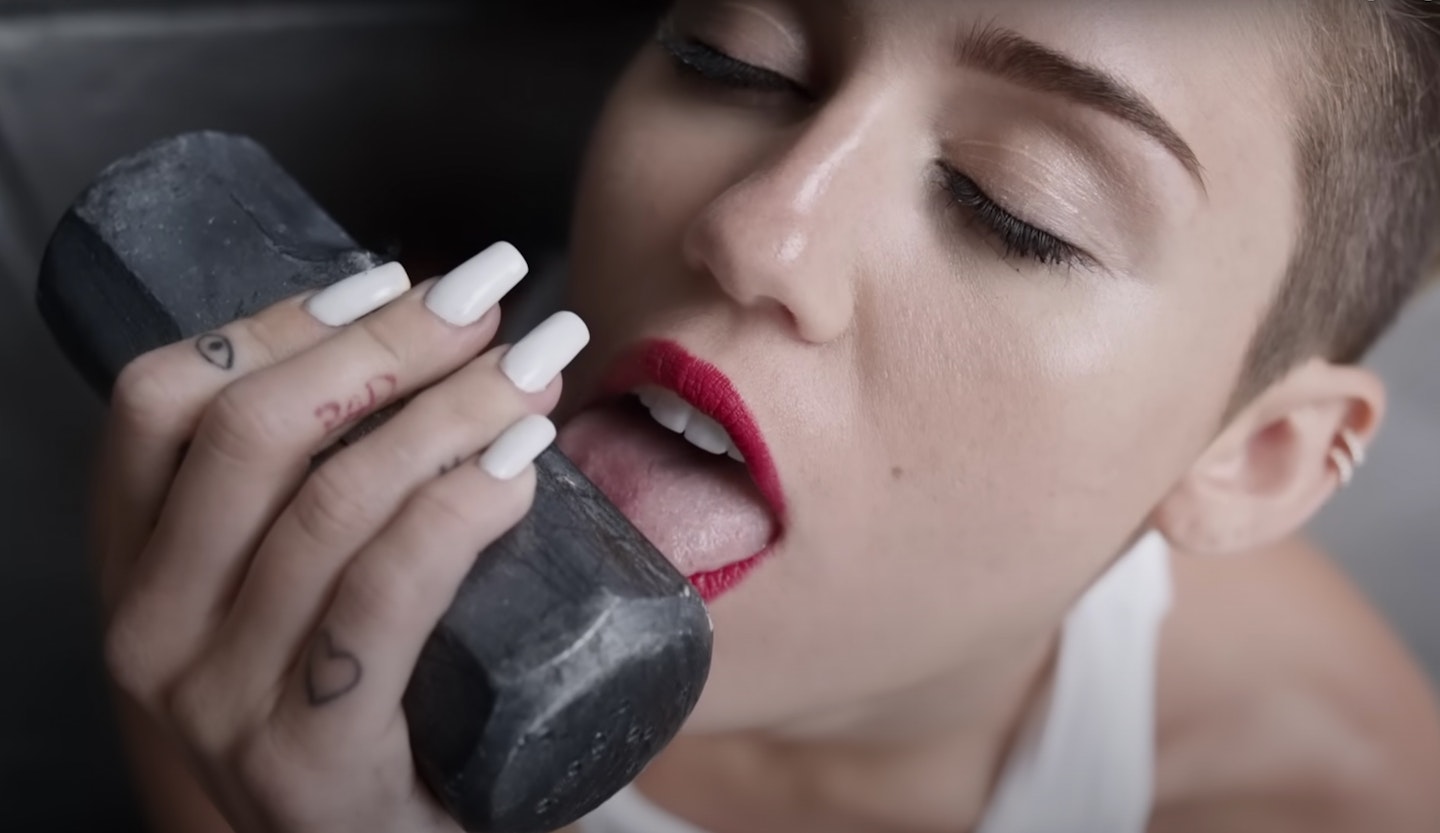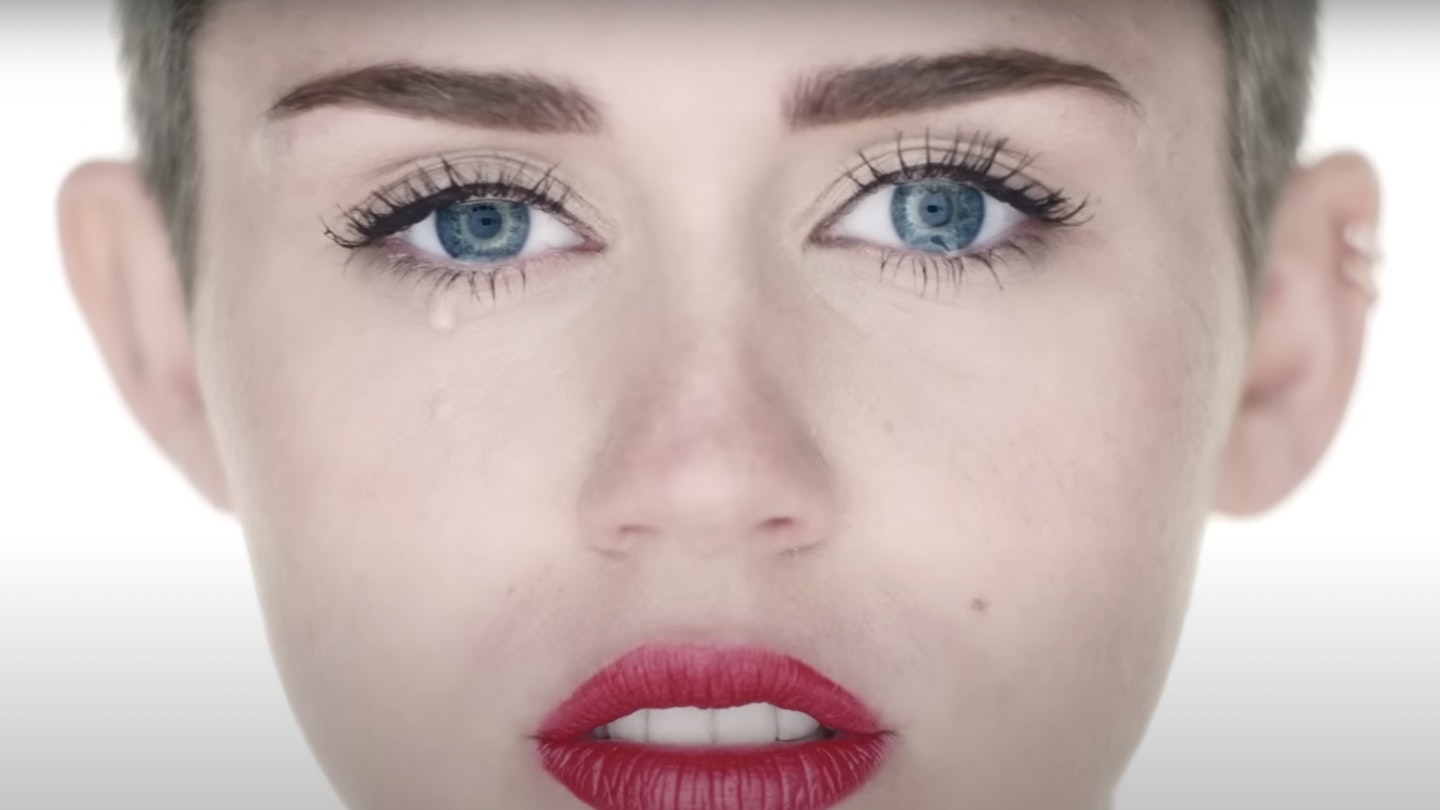Miley Cyrus has addressed the longstanding drama between herself and the late, great Sinead O’Connor in a new documentary.
In Endless Summer Vacation: Continued (Backyard Sessions_)_, she opened up about how she felt about the criticisms Sinead made about Miley in an open letter. The controversy that surrounded this letter has resurfaced following Sinead’s sad passing last month.
After the release of Wrecking Ball in 2013, Miley described being inspired by the accompanying visuals for Sinead’s legendary hit Nothing Compares 2 U. The late singer then aired her concerns about Miley obscuring her talent by ‘allowing yourself to be pimped’.
Miley explained feeling surprised at ‘women putting her down’, particularly those who had been in her position.
‘At the time when I made Wrecking Ball, I was expecting for there to be controversy and backlash, but I don’t think I expected other women to put me down or turn on me, especially women that had been in my position before,’ Miley has explained, drawing on the fact that she’d made fun of old tweets Sinead had posted during poor mental health, comparing her to Amanda Bynes, who has also suffered with her mental health.

‘I had no idea about the fragile mental state that she was in,’ Miley says in the documentary clip, adding ‘It is not acceptable to mock any person for having suffered.
‘I was also only 20 years old. So I could really only wrap my head around mental illness so much and all that I saw was that another woman had told me that this idea was not my idea.’
As well as her acknowledgement of the complexities that came with Sinead’s poor mental health, Miley explained that for her, the criticism around Wrecking Ball hurt because the single had signified her making ‘my own choices and my own decisions’.
‘To have that taken away from me deeply upset me,’ she said. ‘God bless Sinead O’Connor for real, in all seriousness.’ Miley then dedicated a performance of her track Wonder Woman to the late singer.
What exactly did Sinead O’Connor’s open letter to Miley Cyrus say?
Sinead had some choice words to say about Miley’s actions in her Wrecking Ball music video, suggesting that it wasn’t ‘“cool” to be naked and licking sledgehammers in your videos’, insisting that her words were ‘said in the spirit of motherliness and with love’.
Sinead went on to say that Miley had allowed the music industry to exploit her, instead of empowering her.
‘Nothing but harm will come in the long run, from allowing yourself to be exploited, and it is absolutely NOT in ANY way an empowerment of yourself or any other young women, for you to send across the message that you are to be valued (even by you) more for your sexual appeal than your obvious talent,’ she wrote.
‘I am happy to hear I am somewhat of a role model for you and I hope that because of that you will pay close attention to what I am telling you.’
The open letter contains a multitude of strong statements such as ‘The music business doesn't give a shit about you, or any of us’, ‘You are worth more than your body or your sexual appeal’ and ‘you have enough talent that you don't need to let the music business make a prostitute of you’.

She also referenced Miley’s perceived attempts to shed her Hannah Montana image, insisting that ‘whoever is telling you getting naked is the way to do that does absolutely NOT respect your talent, or you as a young lady’.
Advice was also dispensed to Miley: ‘Real empowerment of yourself as a woman would be to in future refuse to exploit your body or your sexuality in order for men to make money from you.
‘Please in future say no when you are asked to prostitute yourself. Your body is for you and your boyfriend. It isn't for every spunk-spewing dirtbag on the net, or every greedy record company executive to buy his mistresses diamonds with.’
It seems that Miley has clarified that her own perception of Wrecking Ball and its music video was about her own type of empowerment, and she therefore felt disappointed at being put down by another woman in the industry for this.
Having acknowledged the mental health difficulties that Sinead was going through at the time, the biggest lesson we can learn from this row is that every woman can find power and strength in their own way – and that can sometimes look different to what we might expect.
